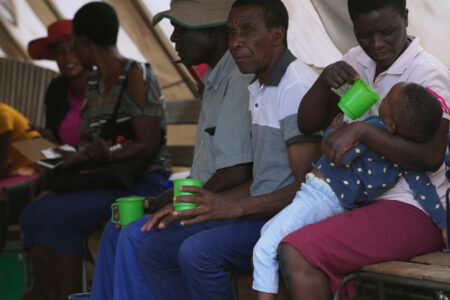
Young people who have “aged out” of the child welfare system and are no longer in government care are being asked to repay funds they have received through the Canada Emergency Response Benefit (CERB). They are now turning to their former agencies and social workers for help. This means some of the most vulnerable young people in our system are now being propelled into poverty due to a bureaucratic mixup that was not their fault. The federal government needs to right this wrong now.
When faced with challenges related to the COVID-19 pandemic, most young people across Canada will rely on family to help them. But young people who have reached the age of majority in the child protection system are no longer eligible for government care and have faced extreme financial and personal difficulties with no family to help them. Instead, they were encouraged to apply for CERB. Cautious, some young people called the Canada Revenue Agency to ask about eligibility and were advised to apply even if they were unsure of their eligibility.
While the priority in the early days of the COVID-19 pandemic was to provide support to as many people as possible, as quickly as possible, the implications of receiving financial support in error are more serious for young people “aging out” of care than for many other Canadians.
Preliminary inquiries with child welfare agencies indicate that the cost to those who might have received CERB without being eligible could be extremely high.
Many of them will not be able to repay the emergency funds they accessed in a time of extreme need. An additional financial setback during a full-blown pandemic will have serious, life-threatening and long-lasting impacts, with Indigenous, Black, racialized, LGBTQ2S+ youth, as well as young people with disabilities experiencing the greatest harm.
In some cases, receiving CERB benefits resulted in a reduction or loss of funding that young people would otherwise be eligible to receive, such as student assistance, social assistance or disability supports — some of which provided access to mental and/or physical health benefits.
In the coming weeks and months, young people already in extremely precarious situations will have to choose between essentials such as housing and CERB repayments. This is simply unacceptable, especially when youth who have “aged out” of child welfare are 200 times more likely to experience homelessness.
Most governments in Canada have recognized the vulnerability of this segment of the population and have implemented temporary moratoriums on youth transitions out of care during the pandemic. Thousands have been able to maintain housing and benefits they would otherwise have lost because they have reached a pre-determined cut-off age.
But not all jurisdictions have acted and not all child welfare workers are aware of the moratoriums. As a result, many young people are still expected to make big life transitions when they reach a pre-determined age in the middle of a global pandemic.
Campaign 2000, a group which fights to eliminate child poverty, has already called on the federal government to implement a CERB repayment amnesty for low-income individuals and families. We urge the government to put in place a CERB repayment amnesty for young people who were in child welfare.
Young people who have “aged out” of care need our immediate, full and unconditional support now. The kind of support a family would offer.
The following people also contributed to this article: Ashley Dawn Louise Bach; Cheyanne Ratnam, Ontario Children’s Advancement Coalition; Conner Lowes, Youth in Care Canada; Marie Christian, Voices: Manitoba’s Youth in Care Network; Susan Russell, Fostering Change; Adrienne Montani, First Call: BC Child and Youth Advocacy Coalition; Jessica Knutson and Amber Moon, Youth Advisory Committee Vancouver Aboriginal Child and Family Services Society; Zo Bourgeois, New Brunswick Youth in Care Network, Partners for Youth; Jennifer Dupuis, Centre Amitié, Ressources et Entraide pour la Jeunesse (C.A.R.E. Jeunesse); Marcelle Partouche, Montreal Youth in Care Alumni Student Association (MYCASA); David French, A Way Home Canada.
Photo: Shutterstock/By art of line.











